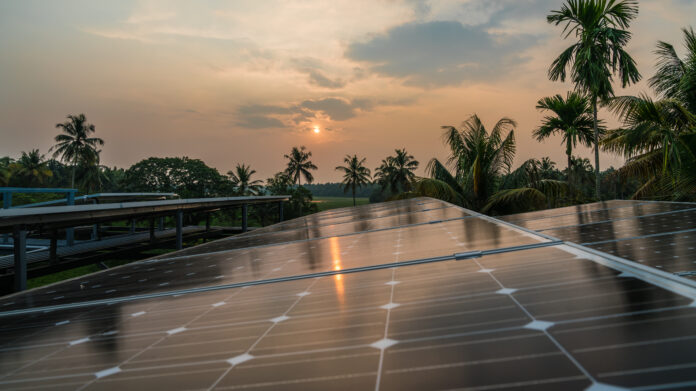
Panels are made with molecules activated by light that can absorb all visible spectrums and provide record efficiency
Scientists from Switzerland have designed a new type of solar window that has produced record efficiency in generating electricity. This new solar window could be revolutionary for the future, as it can help in laying the groundwork for electricity-generating windows to power our homes and gadgets.
According to a report published in Euronews on Saturday, November 11, the cells used to make the windows, known as Grätzel cells, are a type of low-cost dye-sensitized solar cells. The cells use photosensitized dye attached to the surface of a semiconductor to convert visible light into energy.
Although dye-sensitised solar cells have previously been used in solar panels, the primary distinction between the Swiss and traditional designs is the increase in energy production without direct sunlight. Aside from this, the new solar panels are also transparent, which allows the sunlight to easily enter the house, unlike the present options available in the global market.
This breakthrough was made by the scientists at the École Polytechnique Fédérale de Lausanne (EPFL) after they made transparent photosensitisers, which are molecules that can be activated by light. The molecules can also absorb light from all visible sectors, according to the report.
The other advantage these solar panels offer is that they can be manufactured in a wide range of colors, for a comparatively cheaper cost. Due to this new design, scientists have increased the power convergence efficiency of these solar windows. According to the scientists at EPFL, these windows are capable of producing over 15 percent more energy in direct sunlight and up to 30 percent in ambient lighting conditions, in comparison to an average of 20% generated from conventional panels.
Thank you for taking the time to read this article, do remember to come back and check out the EuroNews247 website for all your up-to-date European news stories.








